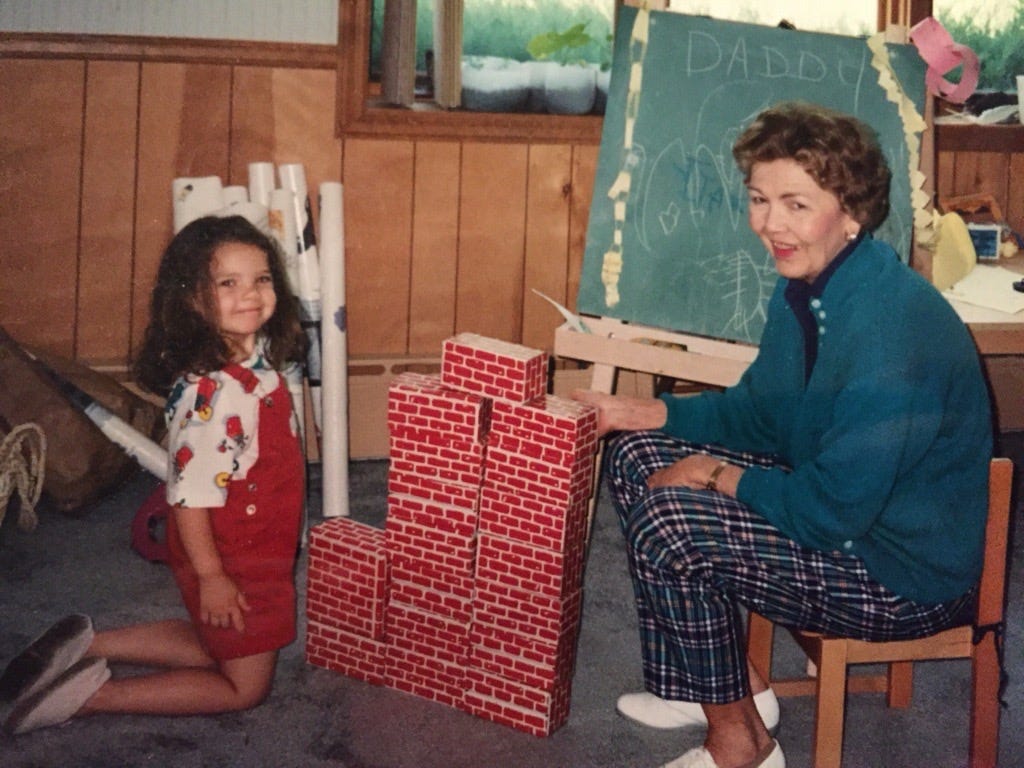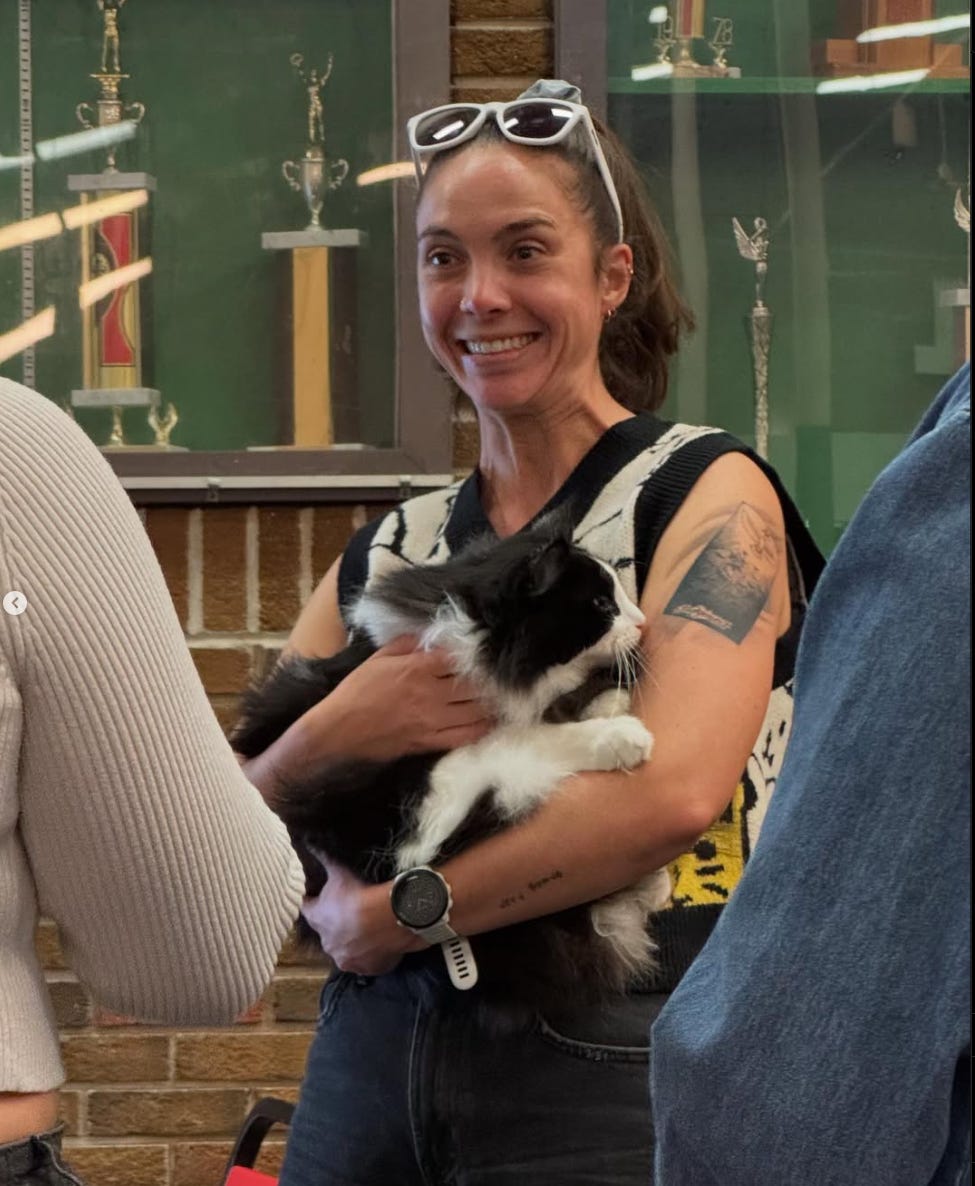Hello friend, welcome to Scrap Facts. I’m Katherine, and I’m glad you’re here.
If you’re new here, welcome. This newsletter came about from my health reporter days when I wanted to find a way to give life to the fascinating tidbits that got cut from my stories. Now it’s evolved into a space where I write about what I learn wherever I can.
At the time of writing, we just sprang forward to start saving daylight. The seed catalogs have crept their way into my mail, reminding me that as the temperatures increase, so does the amount of time I need to spend on yard work.
I love plants, and one of my proudest accomplishments to date is nursing a rather neglected Elephant Ear plant back to health. Each new leaf it produced felt like a gift.
After four years in my current space, I have a good sense of what grows and what doesn’t. I have also accepted that gardening is a lesson in letting go of your ideas of perfection: Try as we might to control things, we’re all really at the mercy of our habitats.
A few weeks ago, my best friend from graduate school came down to visit. We’ve known each other for more than a decade. Else and I are very different people, but what’s remarkable to me is that we were also very different from our present selves in 2014 when we first met. We grew like two vines up the same trellis: distinct, ambitious, and ever-circling.
One of my favorite parts of the weekend wasn’t any one thing we did together, but rather listening to Else talk about the people they love. Else is a nurturer, not only to their extensive friends and family network, but also to their child, who is of the age where growth seems to happen every hour. Else is patient, comforting, and gentle with others. It is a gift to hear them talk about the joy with which they see others thrive.
I am not a nurturer — or at least not in the way Else is. This is something that has been apparent to those closest to me since I was 5, when my parents got called into my school because I had gotten annoyed with my peers for using the slide incorrectly. I don’t remember this incident, but I believe it: My whole life, I’ve gotten the feedback that I suffer no fools.
Sometimes, I worry that this is simply a kind way of saying that I have little patience and can be rather harsh and demanding of others. I fear these qualities can make me unlikable as a woman, but I appreciate them more when I recognize that they are simply more masculine.
When I voiced this worry to Else, they corrected me instantly as only a nurturer can do. “You’re inspiring!” they said, and pointed out that all kinds of habitats can produce life — and by extension, love.
I suppose that we’re all habitats for people. The way we show up, intentionally or not, shapes the kind of relationships we attract. It’s a little more complicated than growing plants, which have no mobility, and therefore choice. But we choose grow thanks to the careful tending of those closest to us. In turn, we create spaces that allow others to grow if the season is right.
I experience Else like the forests in northern California: temperate climate that provides exactly the range of temperatures and water levels that allows trees to reach impossible heights. Like the forest, Else provides the ultimate companionship. When you’re in the thick of it and there’s someone as unwavering as a redwood by your side, providing you shade and refuge? That’s Else. They can be a little hard to reach sometimes — just as its a journey for me to reach the west coast — but that’s not even a flaw, that’s just a fact of life in your 30s.
I’m more of a kelp forest, I think. Hidden beneath the ocean waves, kelp forests are one of the world’s most important carbon sinks. They provide ample nutrition and refuge for local fauna, including sea otters — a keystone species whose fierce tenacity is overshadowed by their affinity for cuddles. As much life as this space supports, however, its not for the faint of heart: Ocean waters can relentless. Instead of sitting with you, as a temperate forest might, in a kelp forest you’re more along for the ride.
This is where the metaphor ends. We are not plants. We need all kinds of people and all kinds of love in our lives to thrive. Sometimes, we need someone to be present with us. Other times, we need a force to physically pull us out of a pit of despair. And every now and then, we just need someone who can make us giggle.
We’re not fixed entities, either. It’s not that I’m incapable of offering a more soothing, patient love — it’s just that it comes less instinctively to me. Else, too, has helped me grow by saying things like “I’m gonna hold your hand when I say this, but…” and delivered a truth that wasn’t easy to digest, but was ultimately beneficial to hear.
My wish for you, reader, is that as you think about the plants you want to grow this spring, you’ll consider how you’d like to grow, and maybe who you’d like to grow with in the coming months. The daylight in the northern hemisphere is getting longer, my friend. We can’t stop it, so may as well see what happens when we embrace the additional sunshine.
What else have I been up to?
We are physical habitats, too. Part of being alive is to honor all the microbes we share our bodies with. These microbes love us in their own way, if you count a symbiotic relationship as love (I do).
We get trouble in paradise, though, when one species gets a little too rambunctious and tries to take over. This was the case when I managed to get a gnarly ringworm infection, exacerbated by an accidental steroid treatment for what we thought was a regular allergic reaction.
Now that I do not have a ringworm infection, I can say that the whole experience was pretty funny. It turns out that certain species of ringworm glow in the dark! I got diagnosed on Christmas Eve by a physician in a Santa suit holding a UV light, and let’s just say Rudolf wasn’t the only one lighting up that day. (Perhaps he should get that checked, come to think of it.)
How did I get ringworm, as a person with a desk job in their 30s? Well folks, I am here to admit it: I cat-ladied too close to the sun. Turns out, you shouldn’t pet every kitty you meet.
I am proud to report, however, that all the cats in and around my home are healthy, happy, and ringworm-free.
I started Women’s History Month strong with Kim Jiyoung, Born 1982 by Korean author Cho Nam-Joo and Why Women Have Better Sex Under Socialism by Kristen Ghodsee. May your feminism always be intersectional and include trans women, my friends.
Follow me on Storygraph for more of my recent reads.
That’s all for now. Stay curious, friend! ❤️
Wanna keep in touch outside of this newsletter? Follow me on Twitter and Instagram.








